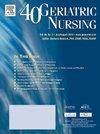居家安宁疗护分期评估指标方案之建构及临床应用
IF 2.5
3区 医学
Q3 GERIATRICS & GERONTOLOGY
引用次数: 0
摘要
本研究旨在建立中国居家安宁疗护的综合分期评估框架,并建立循证工作流程标准。通过系统的文献回顾、德尔菲法和层次分析法,我们确定了四种绝症的分期参数。制定了详细的阶段性护理方案,并经过严格的临床验证。两轮专家咨询的有效率分别为95.2%和100%,权威系数分别为0.928 (SD=0.02)和0.930 (SD=0.03)。主要指标和次要指标的肯德尔一致性系数分别为0.557和0.191 ~ 0.288。最终的分期评估指标方案包括4个一级指标和31个二级指标,从而为评估和护理计划建立了健全的标准。采用德尔菲法构建居家安宁疗护分期评价指标方案,方法严谨、可靠、科学稳健性强。临床验证证实,根据所导出的护理方案制定的针对性护理计划能够合理有效地规划不同阶段的就诊频率和护理准备。这种方法不仅保证了心理支持和人文关怀的提供,而且使有针对性的护理干预措施得以实施。从而显著提高了工作安排的合理性和效率,提高了患者和家属的满意度。本文章由计算机程序翻译,如有差异,请以英文原文为准。
Construction and clinical application of a staging assessment index scheme for home hospice care
This study aimed to develop a comprehensive staging assessment framework for home hospice care in China and establishing evidence-based workflow standards. Through systematic literature review, Delphi technique, and Analytic Hierarchy Process, we identified staging parameters for four terminal disease categories. A detailed stage-specific care protocol was developed and rigorously clinically validated. Two-round expert consultation demonstrated high response rates (95.2 % and 100 %) with authoritative coefficients of 0.928 (SD=0.02) and 0.930 (SD=0.03). Kendall's coefficient of concordance for the primary and secondary indicators were 0.557 and 0.191 -0.288, respectively. The final staging assessment index scheme comprises 4 primary indicators and 31 secondary indicators, thereby establishing robust standards for assessment and nursing care plans. Utilizing Delphi method in constructing the staging assessment index scheme for home hospice care underscores its methodological rigor, reliability, and scientific robustness. Clinical validation has confirmed that the targeted care plan based on the care protocol derived can help rationally and effectively plan the frequency of visits and care preparation at different stages. This approach not only ensures the provision of psychological support and humanistic care but also enables the implementation of targeted nursing interventions. Consequently, it significantly improved the rationality and efficiency of work arrangement, as well as the satisfaction of patients and their families.
求助全文
通过发布文献求助,成功后即可免费获取论文全文。
去求助
来源期刊

Geriatric Nursing
医学-护理
CiteScore
3.80
自引率
7.40%
发文量
257
审稿时长
>12 weeks
期刊介绍:
Geriatric Nursing is a comprehensive source for clinical information and management advice relating to the care of older adults. The journal''s peer-reviewed articles report the latest developments in the management of acute and chronic disorders and provide practical advice on care of older adults across the long term continuum. Geriatric Nursing addresses current issues related to drugs, advance directives, staff development and management, legal issues, client and caregiver education, infection control, and other topics. The journal is written specifically for nurses and nurse practitioners who work with older adults in any care setting.
 求助内容:
求助内容: 应助结果提醒方式:
应助结果提醒方式:


